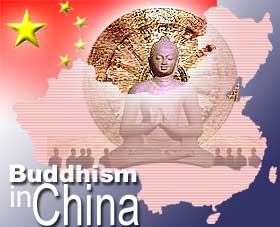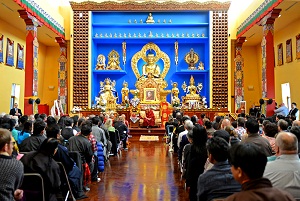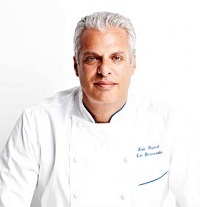by Yang Siqi, Time, March 16, 2016
There are an estimated 245 million Buddhists in officially atheist China, but the religion faces severe legal and political hurdles
Beijing, China -- Yan Lu studied Marxism-Leninism in college, majoring in ideological and political education. After graduating from the prestigious Southwest Jiaotong University in the Chinese city of Chengdu, she worked at a kindergarten and as a secretary. Neither job satisfied her.
 Today, the 27-year-old lives as a Buddhist nun at the tiny Changxing Temple in a village near Beijing. She eschews cellphones, T.V. and the Internet, preferring to spend her time in quiet meditation. “Now Chinese people are richer,” Yan says, “but they urgently need more spiritual life.”
Today, the 27-year-old lives as a Buddhist nun at the tiny Changxing Temple in a village near Beijing. She eschews cellphones, T.V. and the Internet, preferring to spend her time in quiet meditation. “Now Chinese people are richer,” Yan says, “but they urgently need more spiritual life.”China’s religious revival, born of the failings of both communism and capitalism to provide adequate meaning in Chinese lives, has been well-documented. While Chinese have flocked to Confucian temples and Christian churches, the biggest beneficiary is Buddhism. Official statistics don’t exist, but the Pew Research Center, which surveys religious belief worldwide, estimates some 245 million Buddhists in China, around 18% of the total national population. Another 21% of Chinese adhere to folk religions that often incorporate Buddhist beliefs, according to Pew.

 His Holiness the Dalai Lama speaking at the Temple at Deer Park Buddhist Center in Madison, WI, USA on March 6, 2016. Photo/Sherab Lhatsang
His Holiness the Dalai Lama speaking at the Temple at Deer Park Buddhist Center in Madison, WI, USA on March 6, 2016. Photo/Sherab Lhatsang
 Eric Ripert: ‘Kindness does not mean I’m going to hug you. I’m going to observe where your weakness is and I’m going to reinforce you.’ Photograph: Nigel Parry
Eric Ripert: ‘Kindness does not mean I’m going to hug you. I’m going to observe where your weakness is and I’m going to reinforce you.’ Photograph: Nigel Parry






